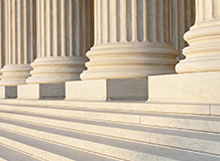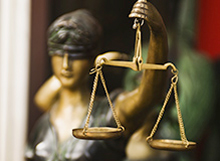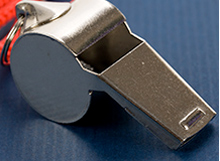SEC Whistleblower Reward
Find Out If You Are Eligible For An SEC Whistleblower Reward

If you voluntarily provide original information to the SEC that convinces it to open a new investigation, or that substantially contributes to an ongoing investigation, and the SEC collects more than $1 million from the wrongdoer(s), you may be eligible to receive an SEC whistleblower reward. That reward must be between 10% - 30% of the amount that the SEC collects from the wrongdoer(s).
However, there are a lot of rules that must be satisfied to be eligible for an SEC whistleblower reward, which is one reason why you should consider consulting with an SEC whistleblower law firm that focuses on SEC whistleblower cases. [For real life stories of the dangers of going it alone, click here and here.]
With the proper legal guidance, the information that you provide can not only help to right the wrong of a corporate or financial fraud, but it can also result in a significant reward for you.
History of the SEC Whistleblower Reward Program
The Great Depression was devastating to our nation's economy. In response, the U.S. Congress created an agency called the Securities and Exchange Commission (the “SEC”) in 1934. The SEC was given responsibility for overseeing the nation’s public securities markets, protecting public investors, and regulating companies that seek to raise money by selling stock on the national securities markets. For the rest of the century, the SEC fulfilled its mission admirably.
Unfortunately, late in the first decade of the new millennium, Lehman Brothers collapsed, other banks were sold at fire-sale prices or went out of business, the Bernard Madoff and R. Allen Stanford ponzi schemes were revealed, and the country fell into the "Great Recession". It became apparent to the U.S. Congress that the SEC needed help to keep up with the explosive growth that had occurred in the securities markets since the 1930s, and the proliferation of frauds and securities violations that had grown alongside them.
In 2010, a new law called the Dodd-Frank Act was enacted. As part of the Dodd-Frank Act, Congress gave the SEC the power to give monetary rewards to individuals who provide the SEC with information about securities frauds or other frauds that lead to successful SEC actions.
In creating the SEC whistleblower reward program, Congress did more than give the SEC the help that it needed. Congress also acknowledged that people who have the courage to stand up and do what is right by reporting to the SEC deserve to be rewarded for their efforts.
Jason Pickholz Talks About The SEC Whistleblower Reward Program










